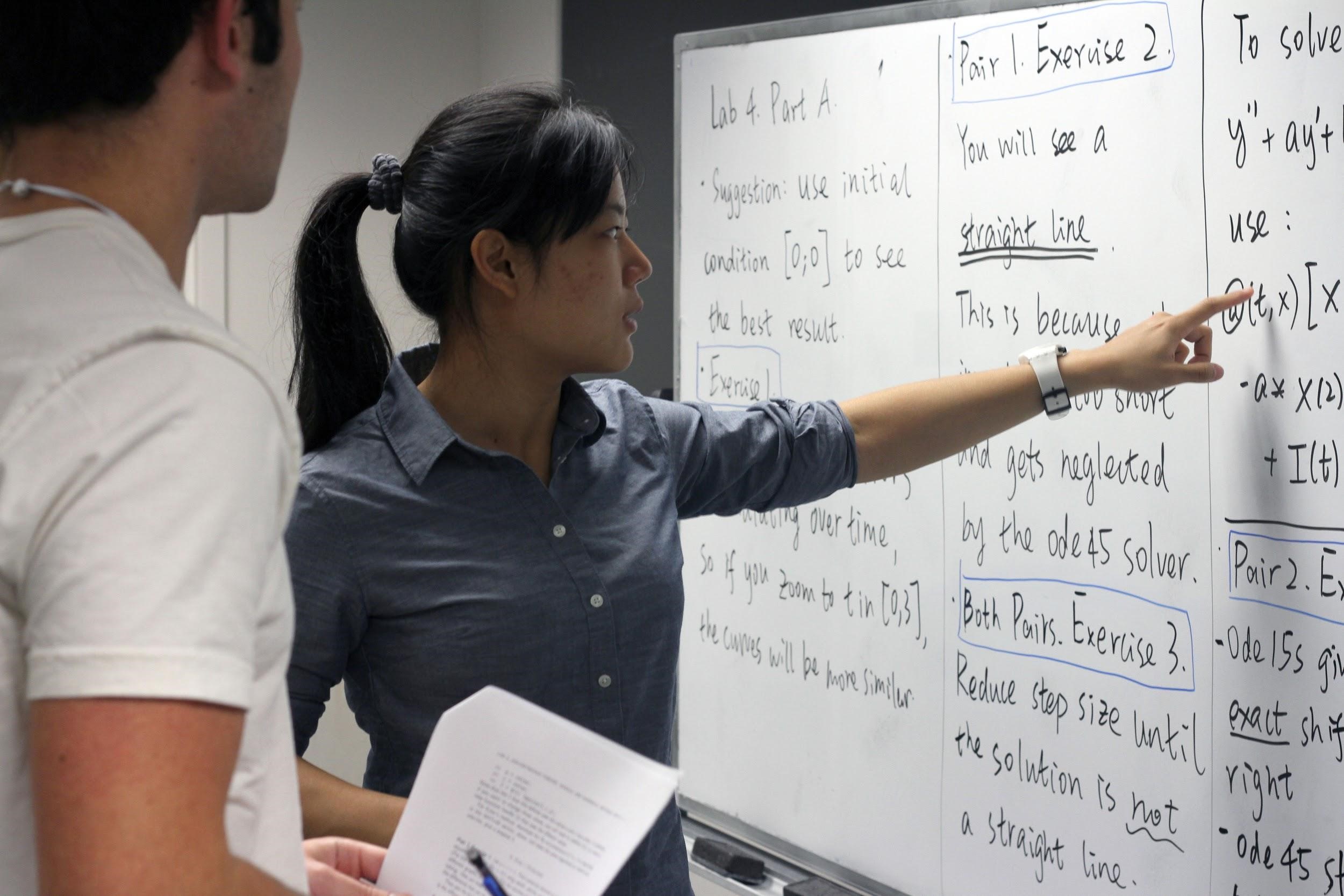 As we approach the middle of the term, instructors are already asked to think about the student evaluations of teaching that happen at the end of the term. In late October, U-M instructors will be invited to preview evaluation questions and create a few of their own questions if they wish. What principles or goals might guide you in that process?
As we approach the middle of the term, instructors are already asked to think about the student evaluations of teaching that happen at the end of the term. In late October, U-M instructors will be invited to preview evaluation questions and create a few of their own questions if they wish. What principles or goals might guide you in that process?
In this blog post, we review the questions that are used University-wide on end-of-semester evaluations, and we provide guidance on how to make the most of the instructor-created questions. These question-writing principles can also be used to create questions for feedback that you collect at other times of the semester.
The current student evaluation of teaching has 10 required items (rated on a scale of “Strongly Agree” to “Strongly Disagree” for all but one, as noted below). Two of these will no longer be included as standard questions after 2020. These questions are:
- This course advanced my understanding of the subject matter.
- My interest in the subject has increased because of this course.
- I knew what was expected of me in this course.
- I had a strong desire to take this course.
- As compared with other courses of equal credit, the workload for this course was (Much Lighter, Lighter, Typical, Heavier, Much Heavier)
- The instructor seemed well prepared for class meetings.
- The instructor explained material clearly.
- The instructor treated students with respect.
- Overall, this was an excellent course. (Expiring after 2020)
- Overall, the instructor was an excellent teacher. (Expiring after 2020)
These questions provide some general comparison with other courses and are included in decisions about promotion and tenure.
Instructor-created questions can go beyond more generalized concepts and speak to the format or content of a specific course. This can provide an instructor with much more helpful feedback in considering the design or approach of a course, classroom activities, or other elements of individual teaching practice.
The University of Michigan student evaluations of teaching allow for up to five instructor-created questions. Instructors can add up to three quantitative (multiple choice) questions, and up to two qualitative (open-ended) questions. These can be great opportunities to ask students to consider specific features of your class (e.g., choice of course materials, particular learning activities, instructional technologies, or guest speakers) in their feedback.
Students, like anyone answering questions, tend to provide better feedback to more specific questions. Asking about a specific type of activity, or asking students to share the most important point they learned during the semester, may provide more useful feedback for refreshing a course for future semesters. The AAC&U (Hansen, 2014) provides useful guidance about how to ask questions and analyze what students say about these specific questions alongside how they respond to the more general University-wide questions.
In forming customized questions, some best practices include:
Writing questions that focus on one thing only. For example, a bad question would be “How useful were the instructional materials and activities for this course?” This question asks about two things (materials and activities). Focusing on the one thing that is most pressing to you will garner clearer feedback.
Avoiding questions that suggest their answers. Yes/no questions can often be leading questions. For example, a bad question would be “Did you learn a great amount from this course?” A better question would be “To what extent do you feel you mastered the content in this course?” This allows students to use a scale to indicate their learning, rather than simply saying they learned or did not learn a great amount from the course.
Focus on relevant and actionable concepts. Students may receive up to 150 questions across their courses in a sample semester of five courses. Making sure that questions are relevant will increase student likelihood of answering them.
In preparation for the final weeks of the semester, thinking about how to increase student response will also help instructors garner more relevant feedback. Our previous blog post will provide useful tips about how to encourage students to complete their evaluations of teaching.
If you would like to talk with a CRLT consultant about forming questions to get feedback from students, we would welcome your request at crltassessment@umich.edu.
- Log in to post comments
- 1990 views






